TUNIS – On a March day in Tunis, Boutheîna El Alouadi appeared out of the crowd of tourists and shoppers swirling around Bab Bhar, a giant stone gate on the edge of Tunisia’s Mediaeval-era Old City. She was out of breath as she jogged to make our meeting while carrying a suitcase full of stage clothes that will transform her later into Medusa – Tunisia’s most prolific female rapper. The 31-year-old artist is a bright example of the explosion of creative expression to emerge from Tunisia after its 2011 Revolution – a mass movement whose gains are being violently rolled back by its new autocratic president, Kais Saïed. Medusa is also one of the very few Tunisian hip-hop artists to gain an international audience of any size.
Medusa is currently promoting her new EP, “Trinity,” which Medusa describes as an “auto-critique of human beings in 3 languages.” She says the album represents her triple role in life as an artist, mother and immigrant – she moved to France in 2016 with a one-year-old daughter and has since lived a double life as a computer engineer and a rapper.
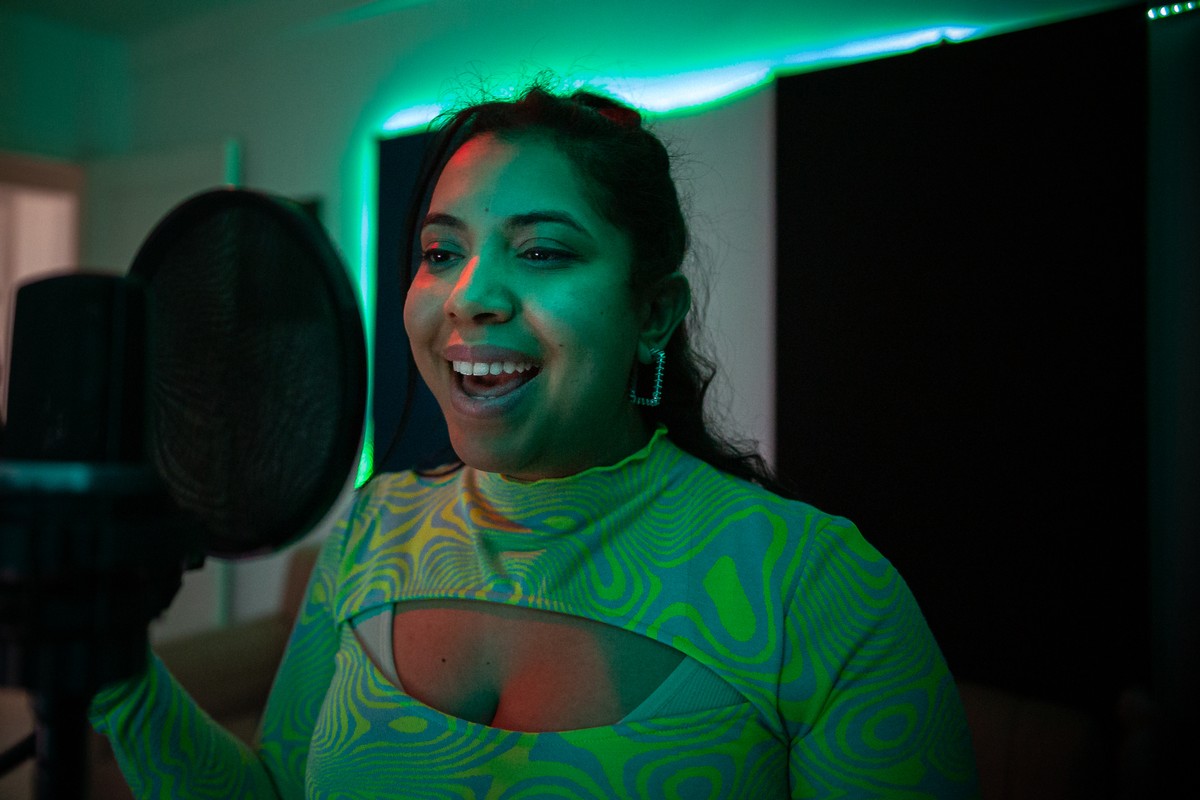
Medusa
The EP, as is often the case with Medusa’s work, is a diverse collection of sounds, languages, topics and feelings. She alternates across tracks – and often, within the same verse – between Standard Arabic, Tunisian Arabic dialect, French and English. It’s this shape-shifting and diversity that make Medusa hard to pin down stylistically, but which might be key to her growing success globally, as she seamlessly blends R&B, soul, trap, hardcore rap, and bare vocals and singing, a sonic representation of Medusa’s frequent refrain about herself: “I’m a citizen of the world.”
Prior to “Trinity,” Medusa put out another EP, “From the M to the A” in 2016, and an EP, “Eklektik,” released on BandCamp in 2014.
We last met in early 2015 in her northeastern hometown of Nabeul. She was then pregnant and well into her rise in the Tunisian hip-hop scene and gaining notoriety abroad. A few minutes later, Medusa, AGE, was sitting in the tight confines of an old café in the labyrinthine alleys of Tunis’ Old City. Young people in the café lounged about on wooden chairs and padded stone benches between columns supporting a roof partially open to the sky, smoking chicha and drinking little espressos.
Medusa’s rise has been impressive in a hip-hop scene – and indeed a country – dominated by a patriarchal culture that has produced “a lot of hit rap songs on the radio talking bad about women,” Medusa said. She added that the male-dominated rap scene is made up of “Ego trip rap songs and boys talking about women as accessories, just like cars and bling, using them as a tool” with which to flaunt status. That dynamic created an opportunity for someone to come along and offer a new vision. “There were no women rappers then to speak about our issues or our point of view,” Medusa told VICE News. “But this made my music stronger – I was confronting these male rappers and confronting the toxic masculinity in the Tunisian mindset. I was talking about freedom of abortion, feminism, women’s social problems.”
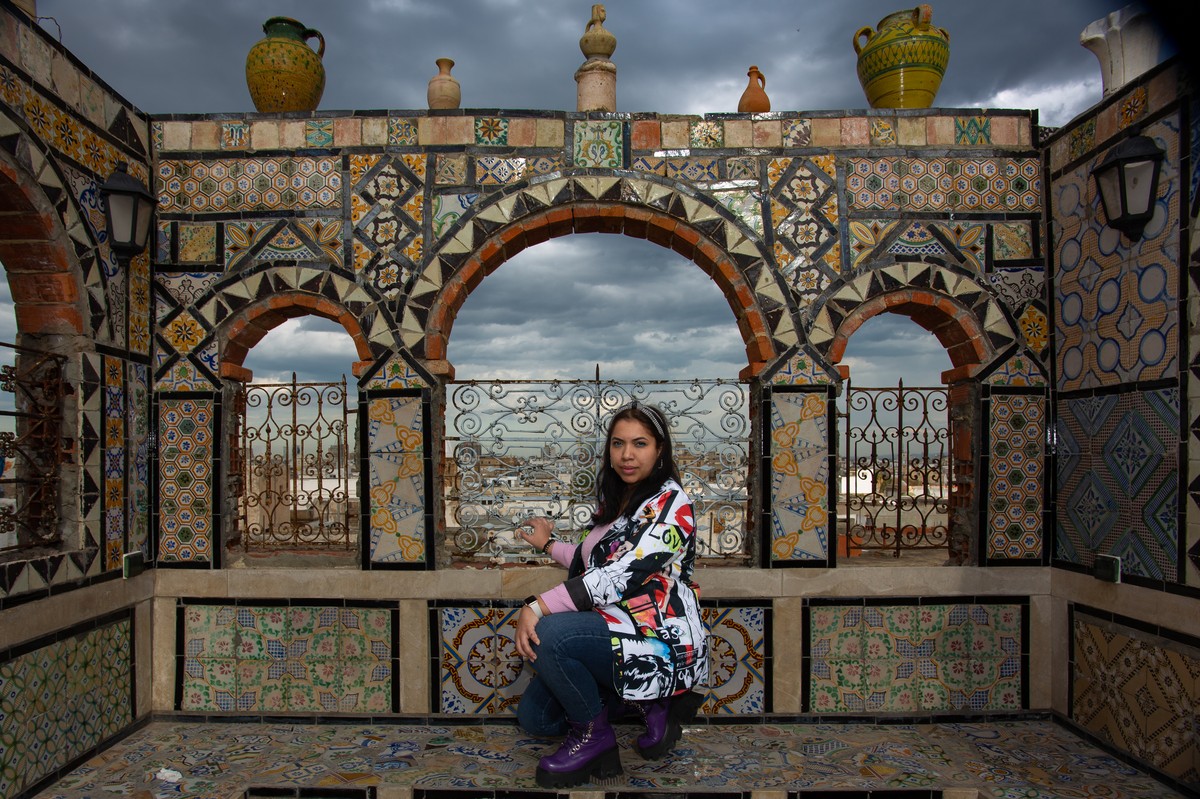



Indeed, beyond not taking female artists seriously, sexist language and stereotypes freely float around the scene in Tunisia. Relatively obscure rappers online spit angrily against the government, calling it “a country of whores,” but using a more offensive Tunisian dialect term. Tunisia’s most commercially successful rappers, like Balti, who came to fame before the revolution under the authoritarian rule of President Zine el-Abidine Ben Ali, the president who ruled Tunisia from 1987 until he was ousted in 2011, casually dis women who like to party and are sexually liberated, and muse about married men who womanize. While there are initiatives to bring more women into the Tunisian hip-hop scene, they are still very limited.
Our conversation comes at a critical time for Tunisia. The North African country is undergoing a sharp slide towards autocracy as President Kais Saïed, a former law professor, leads an unrelenting attack against his perceived enemies in the media, politics, civil society, and minority groups. Saïed was elected in free elections in 2019 with little of a manifesto and no formal experience in politics. In July 2021, with parliament in gridlock and the COVID pandemic spiraling out of control, Saïed dissolved parliament, suspended the constitution and began consolidating legislative and executive powers into his hands.
Since then, the president has pushed back against criticism of his takeover by claiming there is an orchestrated conspiracy against the state, some of it coming from foreign sources. This year, Saïed has arrested judges and opposition party figures, while leaked documents show that contact with Western embassies is being criminalised, and leveraged as a charge against those arrested. It’s a terrible time for freedom of expression, and for being a feminist, too. The socially conservative president has opposed gender parity in appointments of senior political officials, and equal inheritance laws for women, among other things.
Medusa believes there is a growing movement against this repressive tide. “There are a few male rappers who keep encouraging me,” she added, “like Weld El 15 – he’s like my brother, we’re accomplices in music.”
Weld El 15 has faded a bit from the face of Tunisian rap in recent years, but was once at the centre of a raging debate on freedom of speech after releasing the song “Boulicia Kleb” (“The Police Are Dogs”). In it, he raps: “I’d rather slaughter a cop than a sheep on Eid.” The song earned him a two-year prison sentence. To avoid the sentence, he went into exile for several years in France.
“It’s been many years that Medusa and I have known each other,” Weld El 15 told me. “We’ve worked together: I’ve worked with her as artistic director because we share the same musical vision. A lot of politically conscious rappers have a clunky and dry style, but not Medusa. She is a very conscious rapper—but she’s got flow, she’s got technique.”
Weld El 15 went on: “There’s almost no women’s rap scene in Tunisia. Maybe there’s two or three. But Medusa can speak for a lot of young women who experience sexual harassment, or racism. Medusa is like a spokeswoman for these people.”
One of the songs on the “Trinity” EP, “Who You Looking For,” is a mix of huge, lumbering electro beats overlayed with trap sounds, sung and rapped in English and Arabic. It talks about the difficulty of women finding a place even today in the middle of a predominantly male rap scene.
In another track on the EP, called “Size Me,” Medusa denounces the constant criticism of women’s bodies and women’s subsequent quest for the perfect body. “I personally like how I’m supposed to be / My body tells my history / Nobody has a right to judge / I am who I am, stereotypes I don’t match,” she raps. The track’s refrain repeats, “I don’t give a fuck with the size 3 / Cuz I’m totally in love with the size ME.”
In another song, “On M’a Dit,” (“I Was Told”) the only fully French-rapped track on “Trinity,” Medusa pushes back on her critics in the French hip-hop scene who are uncomfortable with her genre-blending style, and all the obstacles for a migrant to getting ahead in France’s music industry. She boasts: “Homie, I’m trilingual, I’m beyond you.”
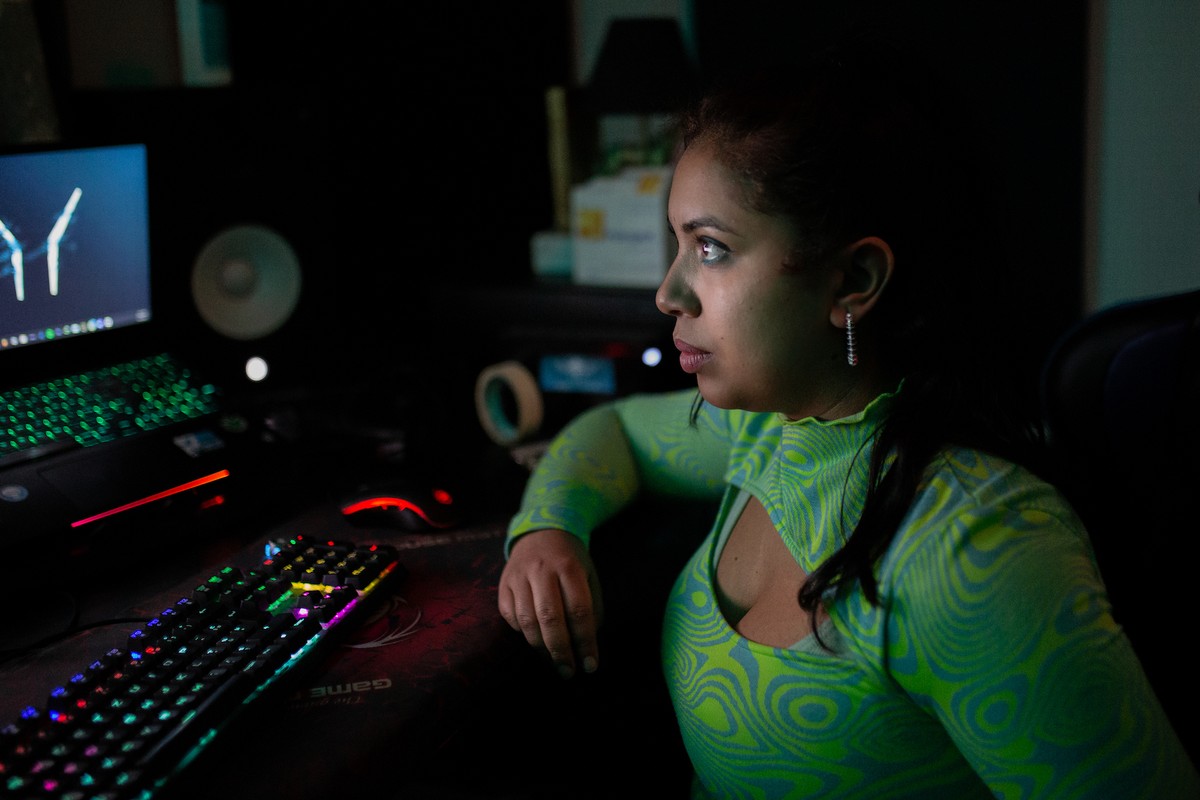



Medusa
Medusa’s lyrics in English, which is her third language, are often lighter on the complex rhyme schemes found among other rap artists. Even while rapping in Tunisian Arabic dialect or French, the imagery and metaphors can seem less than nimble. But this quality in Medusa’s production may also be a strength: her messages are direct and easily understood, they are unpretentious, and instead of shallow pop-rap lyrics, they are militant, calling for empowerment, self-love and justice.
Medusa performs live, either with her DJ, or a dedicated live band. And she gets around in her concerts, she says. “I perform mainly in the USA and Europe, and I’ve been invited to countries like Sweden, Lebanon, Mauritania, Morocco, Jordan, Germany, Belgium.”
Despite the success, she said, “I am still self-managing and looking for a booking agency.”
The way Medusa tells it, her fans aren’t limited to any one group: “I am heard everywhere,” she said. “Latin American countries, the Middle East, North Africa, Europe, USA, Canada. They are more of a loyal group that follows me,” than just fans.
And her popularity is garnering media attention. Everyone from Vogue Arabia, Sky News, BBC, Middle East Eye, and others has had a curious look at this artist from Tunisia. In fact, as I wrapped up my interview with Medusa and headed out, I passed a TV cameraman on his way to meet her.
Perhaps one thing that sets Medusa apart in the relatively small North African hip-hop world is how solidly grounded Medusa is in the elements of hip-hop culture. She began her journey into rap through other elements of hip-hop, at the age of 10.
“Hip-hop culture started in Tunisia in the 1990s,” she said. “When we listened to Tunisian rappers, we did so in hiding… it took a lot of balls [for a rapper] to criticise Ben Ali,” she says, referring to the autocratic president.
The taboo, she said, was softened in her family by her parent’s love for pop music. Her dad listened to Michael Jackson, and her mum listened to American and French rap.
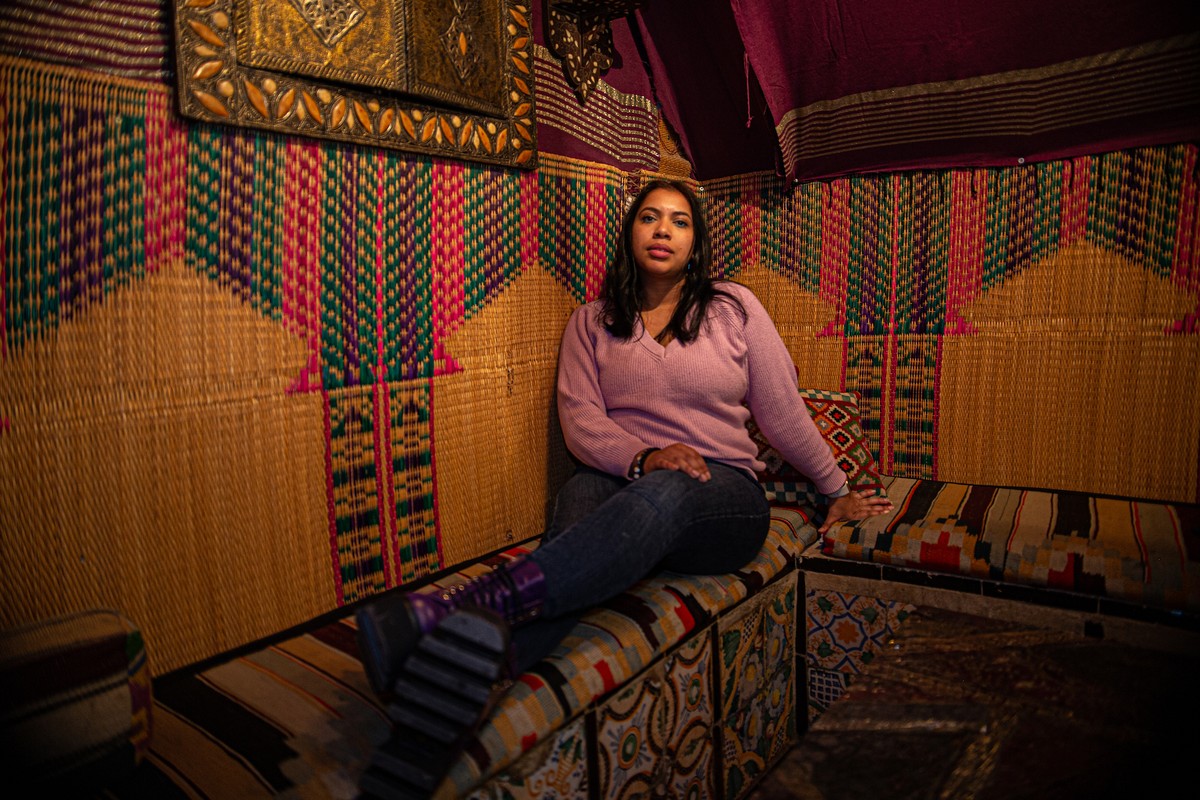



Around 2000, Medusa’s brother started breakdancing. “He and his crew didn’t have a good space to practise, so they practised in the mosque in front of my primary school,” she said. “I used to come out of school and watch them.”
“I told my brother, ‘I want to try breakdancing too,’ so he taught me. I started in hip-hop through breakdancing,” she giggled.
Then her brother’s friends set up a recording studio in the Nabeul youth centre, and started rapping under the group name “MC Street”. Medusa joined her brother’s friends in writing lyrics and rapping, starting her rap career at age 16.
It was only a few years later, however, that an uprising against economic immiseration and the repression of a decades-old police state struck during Medusa’s first year at university. That uprising became a nationwide revolution that led to the fall of a dictatorship and the beginning of a years-long struggle to build a democratic system.
It was after the Revolution that Medusa’s rap really started to take on the challenges of feminism and political consciousness.
“In 2011, I recorded a song called “Tounsiya et Fière de l’Être” (“Proud Tunisian Woman”),” she said. “It was broadcast on local radio stations. But I didn’t realise its impact until I went to do a concert in Mauritania, and was invited to a radio station. The women interviewing me in the radio station knew every single lyric of my song.”
Years later, she was working on a collaboration project, and into the studio walked a Libyan female rapper. “She said, ‘Oh my god, it’s Medusa! I discovered female rap through your song ‘Tounsiya et Fière de l’Être.’ That’s what made me decide to become a rapper.’”
Then, in 2013: “I did a performance in downtown Tunis for a flashmob event with dancers. An association of female doctors contacted me to do a song about abortion. It was in response to the [first post-revolution] government led by Islamists who were inciting doctors not do abortions because it was haram,” she recounted
Ultraconservative Salafists were angered by Medusa’s feminist performance. So much so, she said, “The police had to come pick me up from the event to bring me to my house.”
It was then that she began to realise that her raps were political. “If you’re criticising the people in power, you’re doing political rap,” she said confidently, before clarifying: “but I’m not just that.”
Halfway through our interview, Medusa checked her watch: it was time to hit the studio, which she had reserved for a couple of hours that night. We got in Weld El 15’s beat-up car and off we flew down a highway skirting a lake towards a suburban neighbourhood of cookie-cutter apartment towers which form a small patch in Tunis’ relentless urban sprawl.
In one of these apartment towers, her friend and producer, Iheb Snoussi, sporting a red beanie cap, opened the door to his studio. Weld El 15 took a seat outside the recording area, and chatted and played on his phone while Medusa stood next to a brightly-lit console, singing along to her own voice as Iheb fixed levels on “Trinity” tracks.
She dropped herself onto a couch behind the console and spoke about her new life as an artist in France.
“When I moved to France, nobody knew about me. I started from the bottom with open mics to find my place in Paris.”
But it wasn’t too long before she started to get her footing and move up.
“One time there was a rap cypher being broadcast on TV from the biggest spot for hip-hop in Paris: La Place. An Italian friend and I saw that the cypher was only guys, so we ran up to the stage chanting “We want to rap!” So, they put us on stage and we freestyled. And afterwards, journalists were approaching us more than the finalists in the cypher,” she laughed.
Later on in France, she joined Call Me Femcee, a collective of women rappers hailing from Mongolia to Tunisia to the US and everywhere in between. She has toured Europe with Call Me Femcee, performing in Belgium, France, Germany, and elsewhere.
In 2018, Medusa started performing with a live band in France. “That’s when things really started to get professional.” French institutions are now starting to give her attention and funding, and this has gained her priority access to rehearsals and artists’ residencies.
Yet while things are beginning to look up for Medusa’s career in France, coming home periodically to see her family and old colleagues is painful, as dysfunctional governments, economic decay, and now, a return to authoritarianism under President Kais Saïed, reign.
“I can feel the pain and the struggle,” Medusa said. “I see a change every year when I come back to Tunisia. But the change is for the worse. When I see all my friends emigrating to Europe, I can tell that the youth is disgusted with what the people in power are doing and just want to leave. It’s hopeless, but this is the reality.”
Some of that pain and struggle is tied to the immense racist animus being stirred up. In his latest conspiracy-theory attack, in February Saïed gave a speech scapegoating black migrants from Sub-Saharan Africa, and called them part of a criminal plan to change the demographic makeup of Tunisia to make it “a purely African country that has no affiliation to the Arab and Islamic nations.” Violent attacks on Sub-Saharan Africans in Tunisia and expulsion from their homes skyrocketed after the speech, leaving thousands homeless and terrified. Emergency repatriation flights brought some back to their home countries, as life in Tunisia became dangerous. His comments and their aftermath were met with international condemnation, not least, from other African states.
“I’m ashamed of what these politicians are doing. My mom is Black, from the south of Tunisia. I have a whole part of my family in Nabeul that is Black,” Medusa said. “I’ve experienced this racism since I was a kid because I’m mixed. It’s a very old mindset here, of the superiority of white over Black.”
“People here in Tunisia forget that they are African – it’s crazy,” she added. “But in my songs, I’ve talked about this. I’m proud to be African. Proud to be Muslim, a North African woman.”
With anti-Black racism and a political witch hunt looming over everything these days in Tunisia, what can the artist do to help fight the authoritarian wave? The question seems to unsettle Medusa for a moment. She complains that rap artists in Tunisia now are only making music for entertainment, for money. “There’s no meaning in it,” she said.
Mid-sentence, it seems, clarity came to her. She looked up.
“We need to have some guts and make more political rap. We have to criticise what’s actually going on in Tunisia. Real artists can be a mirror for what society is really living.”
This post was originally published on this site be sure to check out more of their content.


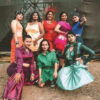
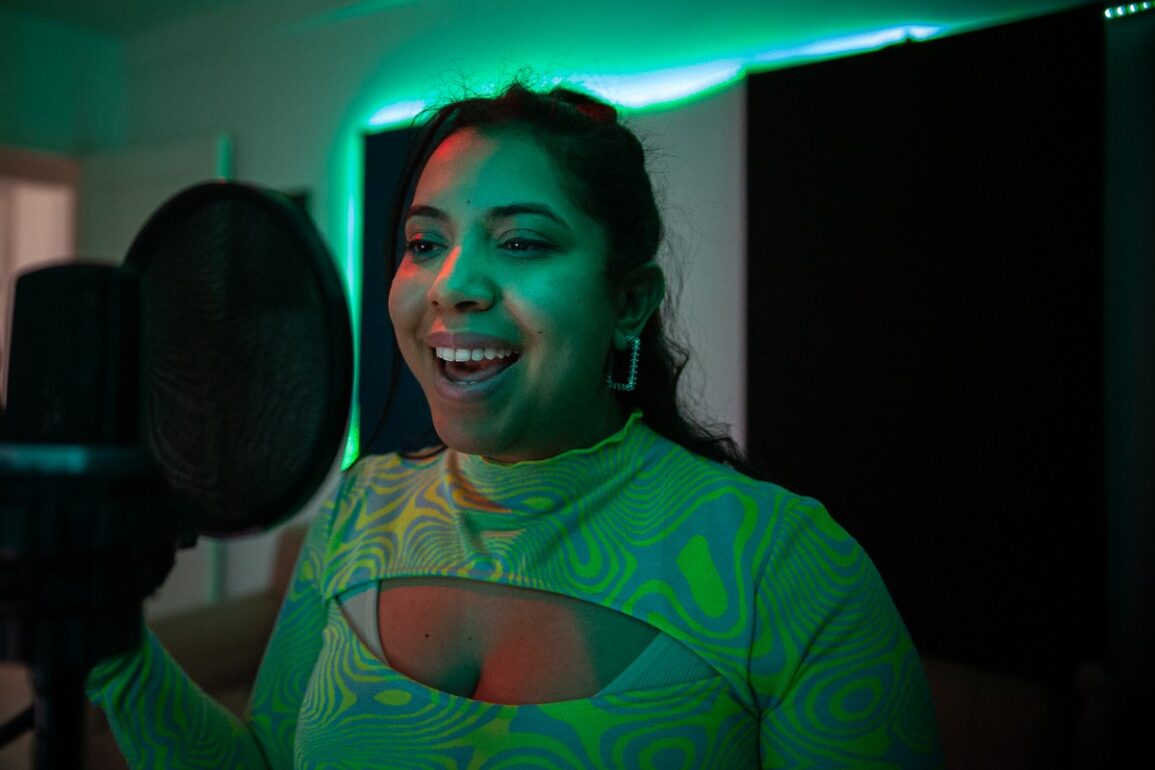

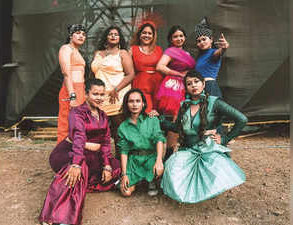
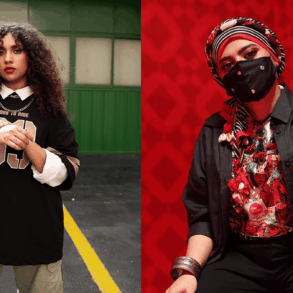

Domestic violence and psychologic violence does make her fighting for Tunisian women ? Don’t think so